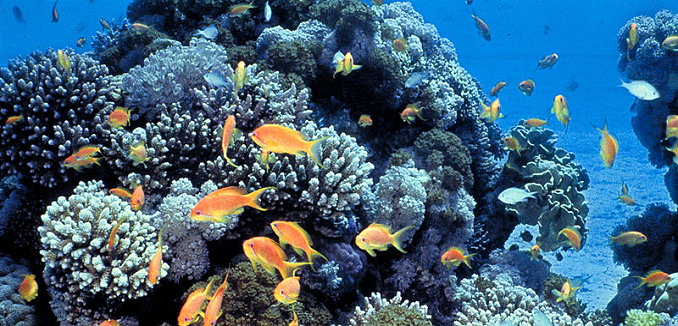Israel has joined several neighboring Arab states in a regional venture for the protection of coral reef ecosystems under the mediation of a neutral third-party, it was announced Thursday.
The Red Sea Transnational Research Center, located in Bern, Switzerland, will be staffed by researchers from all the countries bordering the Red Sea, including Israel, Saudi Arabia, Egypt, Jordan, Eritrea, Sudan, Yemen, and Djibouti.
The project was initiated by Bar-Ilan University professor Maoz Fine. Other cooperating institutes include the University of Jordan’s faculty of marine sciences in Aqaba and a university in Saudi Arabia.
“The relatively narrow sea is surrounded by countries and people who are directly dependent on the well-being of the coral reefs,” said Prof. Fine, a marine biologist at Bar-Ilan University’s Mina and Everard Goodman Faculty of Life Sciences.
Coral reefs form some of the world’s most critically important ecosystems, providing a home to a large variety of animals, including fish, seabirds, sponges, cnidarians, worms, crustaceans, and mollusks.
Although corals in the Red Sea and the Gulf of Aqaba have so far proven resistant to climate change, coral reefs worldwide have been badly damaged by rising sea surface temperatures and ocean acidification, as well as pollution, over-fishing, and physical destruction.
“The proximity of urban areas and tourism to the reef may inflict damage to it if we aren’t wise enough to coordinate our actions when using this asset,” Prof. Fine explained. “Our lab at Bar-Ilan University and the Interuniversity Institute for Marine Sciences in Eilat is focused on understanding resilience and how local disturbances adversely affect this unique resilience to global change.”
The scientific community believes that expert cooperation can best overcome those threats through knowledge-sharing and regional coordination, despite the complex political situation.
The research project will bring together scientists from a wide range of disciplines, including oceanography, biology, genetics, ecology, geology, nature conservancy, and civil and environmental engineering.
[Photo: Daviddarom / Wikimedia Commons]




